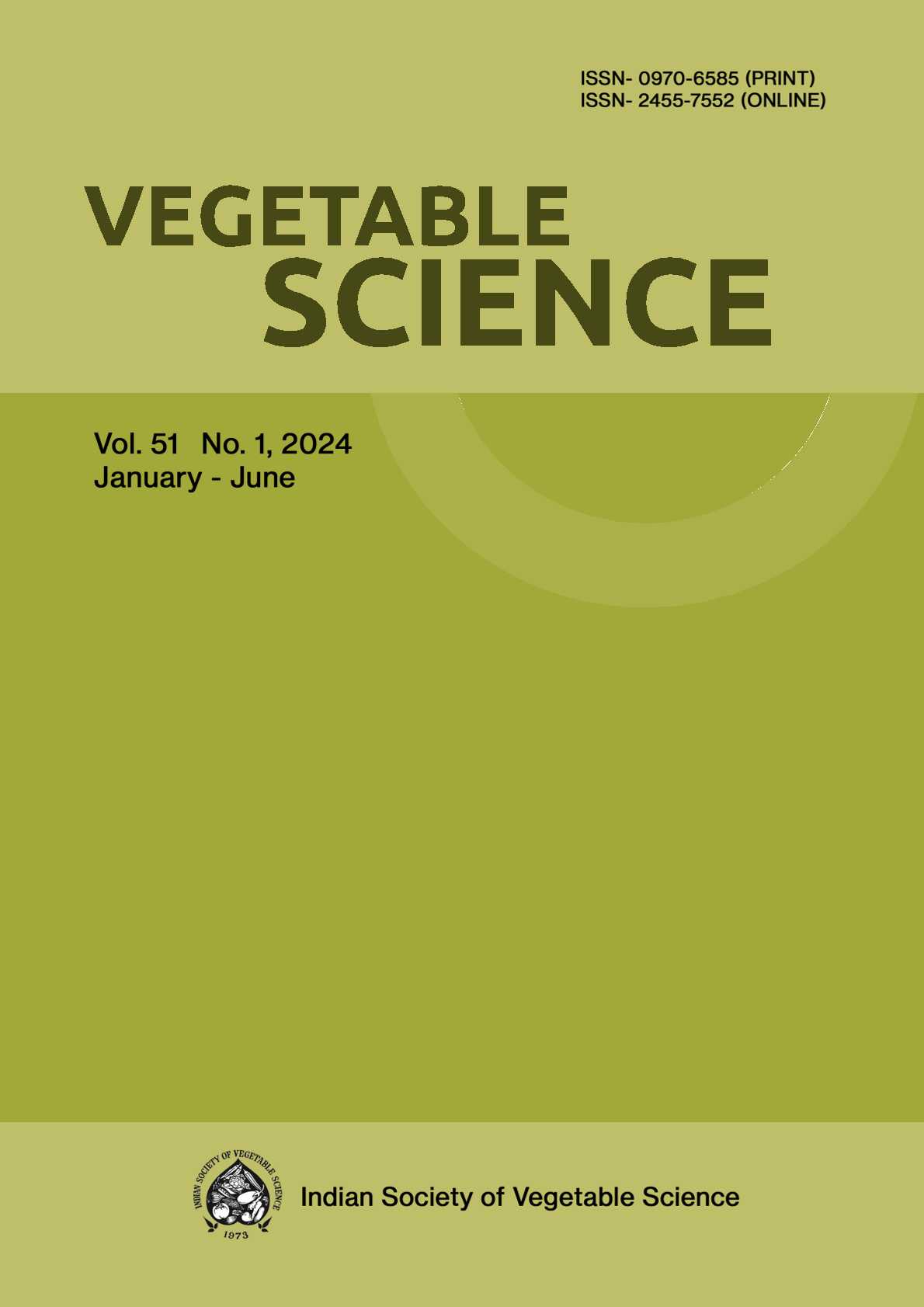Physiological effect of fruit load management and post-harvest ripening on seed yield and quality in summer squash (Cucurbita pepo L.)
DOI:
https://doi.org/10.61180/vegsci.2023.v50.i2.17Keywords:
Summer squash, fruit load, post-harvest ripening, seed quality, MDA and antioxidantsAbstract
In summer squash, the formation of underdeveloped seed and fruit set inhibition due to a limited supply of assimilates to sink is a major bottleneck during seed production. Present study was conducted to study the physio-biochemical changes associated with the fruit load management and post-harvest ripening (PHR) in seed production of bushy type (short internodal length) summer squash cv. Kashi Subhangi at ICAR- Indian Institute of Vegetable Research, Varanasi, during the winter season of 2021-22 and 2022-23. Among different treatments of fruit load (1 fruit/plant, 2 fruit/plant, 3 fruit/plant, 4 fruit/plant and all fruit/plant) and post-harvest ripening duration (0, 10, 20 30 days), the retention of 2 fruit/plant and PHR of 20-30 days gave the better seed quality (germination and vigor) and seed yield (total seed number per fruit and 100-seed weight). Restricting the seed number and allowing PHR, improved the seed yield and quality significantly due to the targeted supply of assimilates and extension of period of supply, respectively. Physiological analysis showed a significant change in malondialdehyde (MDA) content, superoxide dismutase (SOD), catalase (CAT), peroxidase (POD), ascorbate peroxidase (APX) and glutathione reductase (GR) enzyme activity was recorded during different fruit retention and PHR treatments, which attributed in differential seed quality
Published
Issue
Section
License

This work is licensed under a Creative Commons Attribution-NonCommercial-NoDerivatives 4.0 International License.






